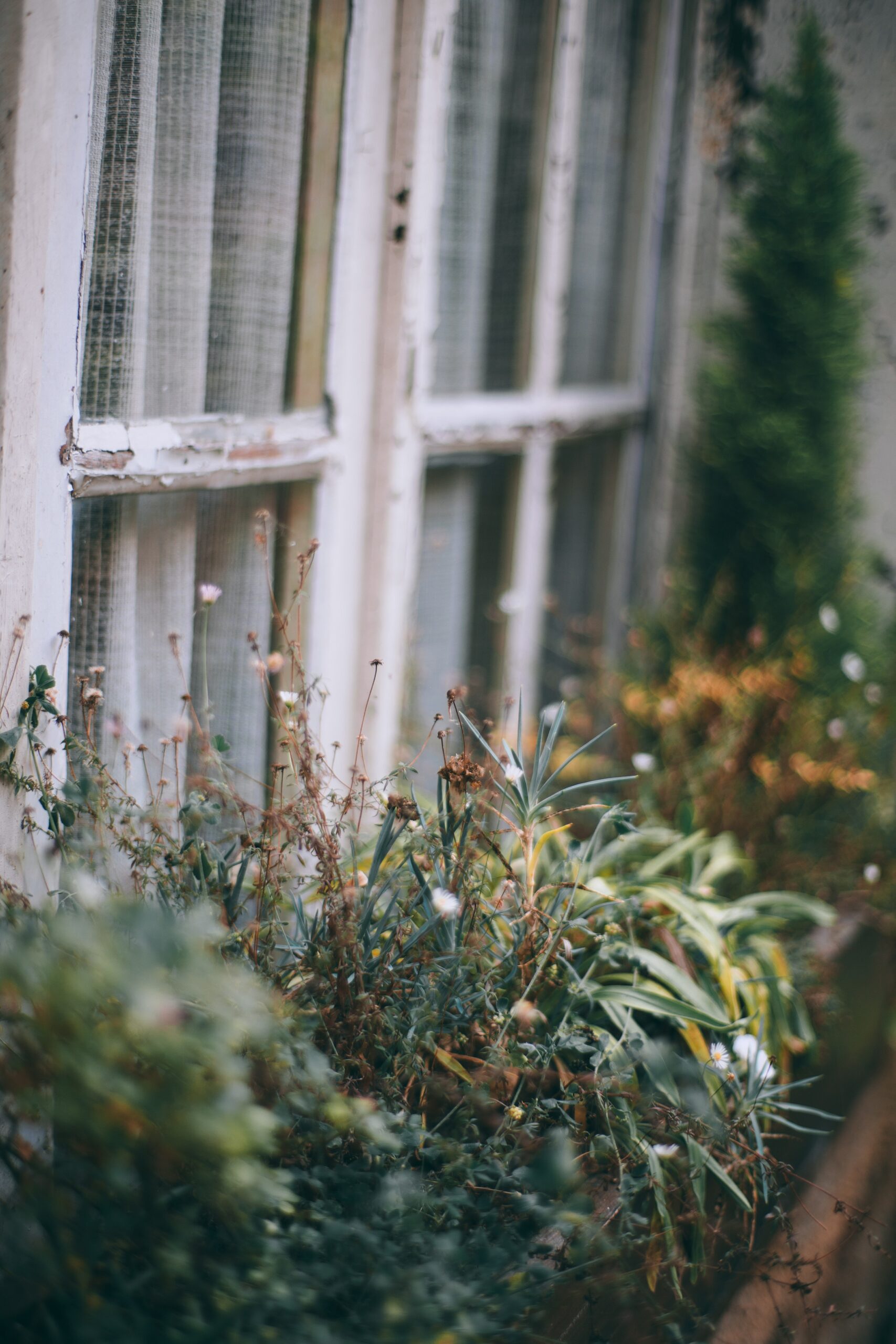
Iowa City, Iowa
For months I cared for my plant: watered it, brought in light, cleaned its jar. I noted with pleasure when new leaves began to sprout. The capillary green that unfolded overnight. I watched its roots mingle and spread, tracing against the glass. Don’t forget to watch over the plant. But when I returned from four days away, half of the leaves had yellowed. One fell off at my touch. I watched as a fifth leaf began also to lose its pigment.
.
In the Midwest, the wind carried the smell of nearby farmland, and the air was filled with tiny insects. We were quiet as we drove on into town, amidst drab streets and overcast buildings. In the Midwest, small, winged bugs kept flying into my eyelashes; I could feel them when I blinked.
.
Inside our underground apartment, I touched your face while you were sleeping and was startled by the movement under your eyelids. The way your body kept breathing even in the dark, your fingers twitching, your arm trembling downward. I wanted to reach over and shake you. As if I could not bear to see your body this way, while my own was fully conscious.
.
In the morning there were two boiled eggs and a white porcelain bowl with translucent stars sitting on the table. A week later we were both on a plane to see a friend who would tell us he was unhappy 80% of the time. When the flight attendant reached our row, I asked for two waters, but you later woke up and wanted something with carbonation. There was light filtering in through the window; I looked down at the squares of dark brown, burnt sienna, sand-washed brown and didn’t know whether it was beautiful or simply patches of dirt through a foggy, smudged window.
.
In the Midwest, I poured hot steaming water over flower petals and leaves, which floated and sank before settling. The dark tiny splints, like pine needles broken in half. The soft see-through of the petal on my tongue. They stayed in place when I turned my cup. I wanted to drink from the other side of the cup but something about the physics of it was wrong.
.
We started falling asleep all the time, everywhere, only to wake up separately in the middle of the night and feel the way to the bed.
.
On the couch again, I reached over, my hand hovering. You stopped me, gripping my arm tightly. I told you we should have a signal: whenever I grow frustrated, unable to articulate, you wrap your arms around me and squeeze, crushing my bones, feeling the weight splinter and crack near the inside of my elbows.
.
Sometimes I walked around the apartment, taking pictures of things I could see through: the rice canister, the dirtied glasses next to the sink, bottles and jars clustered on top of the refrigerator. I rearranged the empty vases and thin second-hand bowls I was afraid to use. I inspected the scattered mail on the table but did not touch them. Sometimes I noticed my lips, dry and cracked, splitting open at the crest.
.
The day before, it rained, and water was seeping in through the seams of the window. You asked me a question, to which I replied, Nothing. The algae jar sat on the windowsill, heated by the sun, light green murkiness acting as a filter as it clung onto glass and roots underwater. And even after the jar was refilled with clean tap water, the shapes still seemed to waver and bulge when I looked too close from too many angles.
.
In the park I was swinging, my body near the sky. And it was that moment at the top, when the body was about to fall back again, fingers gripping metal chains: at that moment, the body, caught between flying and falling, cringed and held its breath and waited to burst. Later at night as I was falling asleep, my leg thrusted out, jerked on its own in tiny, sharp movements. As if there was something bubbling inside the bones and muscles. In the haze of my half-awake, half-asleep state, I began also to feel frustration; frustrated with the confusion of my body, I made noises.
.
Later in the summer, the air full of warm grass and fertilizer, you came home, and we played cards, eating dinner in the living room as I lay against you. We went out for ice cream, and in the night I traced circles on your arm.
.
I’m sorry, you’d repeated, over and over, when I stopped drinking the soup and looked closely at the tiny dead bugs floating around in yellow broth.
Jennifer S. Cheng’s work includes poetry, lyric essay, and image-text forms exploring immigrant home-building, shadow poetics, and the feminine monstrous. Her book MOON: LETTERS, MAPS, POEMS was selected by Bhanu Kapil for the Tarpaulin Sky Award and named a Publishers Weekly “Best Book of 2018.” She is also the author of HOUSE A, selected by Claudia Rankine for the Omnidawn Poetry Prize, and INVOCATION: AN ESSAY, an image-text chapbook published by New Michigan Press. She has received awards and fellowships from Brown University, the University of Iowa, the National Endowment for the Arts, the U.S. Fulbright program, Kundiman, Bread Loaf, MacDowell, and the Academy of American Poets. Having grown up in Texas and Hong Kong, she lives in San Francisco. www.jenniferscheng.com
Photo courtesy of Pexels user Maria Orlova.




